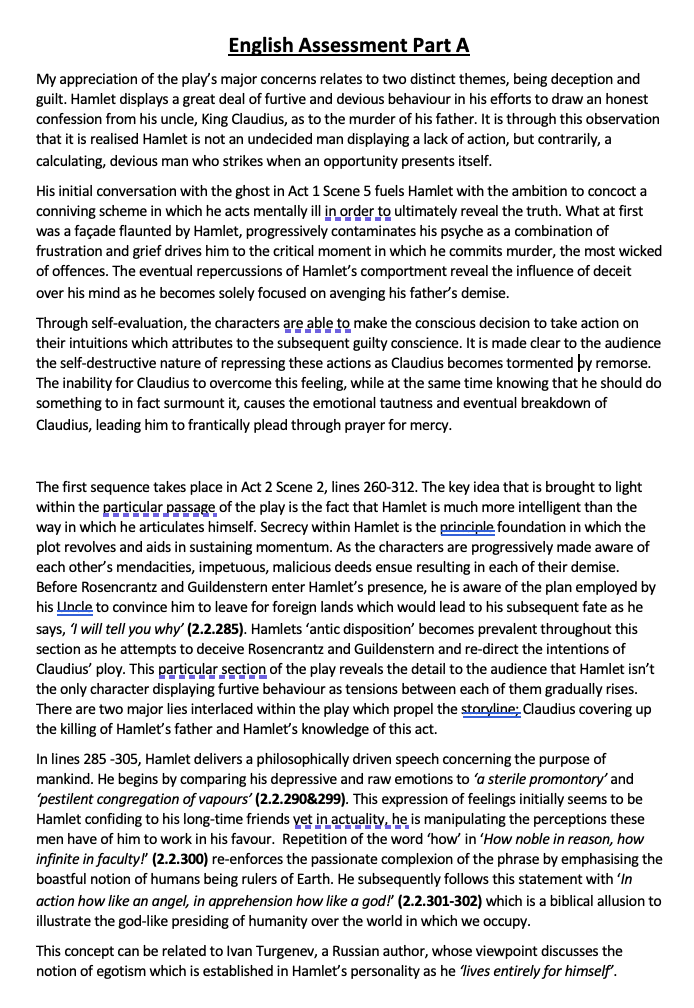Deception and Guilt in Hamlet – Year 12 HSC English
Summary:
The text discusses two major themes in Hamlet: deception and guilt. It explores how Hamlet’s behaviour is driven by his desire to uncover the truth and avenge his father’s murder, leading to his own descent into deceit and eventually committing murder. The passage also examines the role of self-evaluation and conscious decision-making in relation to guilt and its consequences on characters like Claudius. It analyzes specific scenes and dialogues to highlight the characters’ deceptive actions and internal guilt struggles. The themes of deception and guilt are interconnected, revealing the characters’ complex nature and motivations. The text includes references to literary techniques, critical analysis, and religious allusions to deepen the understanding of the themes.
Excerpt:
Deception and Guilt in Hamlet – Year 12 HSC English
English Assessment Part A
My appreciation of the play’s major concerns relates to two distinct themes, deception and guilt. Hamlet displays a great deal of furtive and devious behaviour in his efforts to draw an honest confession from his uncle, King Claudius, as to the murder of his father. Through this observation, it is realised that Hamlet is not an undecided man displaying a lack of action, but, contrarily, a calculating, devious man who strikes when an opportunity presents itself.
His initial conversation with the ghost in Act 1 Scene 5 fuels Hamlet with the ambition to concoct a conniving scheme in which he acts mentally ill to ultimately reveal the truth. What at first was a façade flaunted by Hamlet, progressively contaminates his psyche as a combination of frustration and grief drives him to the critical moment in which he commits murder, the most wicked of offences. The eventual repercussions of Hamlet’s comportment reveal the influence of deceit over his mind as he becomes solely focused on avenging his father’s demise.
Through self-evaluation, the characters can make the conscious decision to act on their intuitions, which is attributed to the subsequent guilty conscience. The self-destructive nature of repressing these actions is clear to the audience as Claudius becomes tormented by remorse.


Reviews